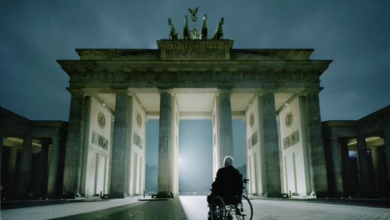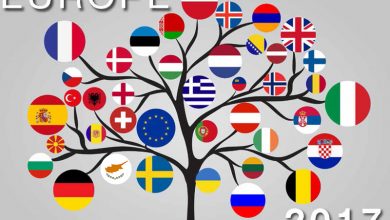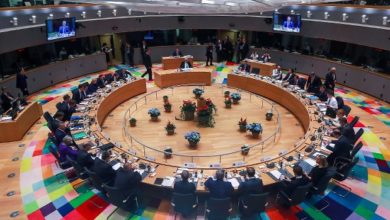Why You Should Attend a Model European Union in Your Lifetime
The spot outside your comfort zone that you’re addicted to

The EU decision-making process is very complicated. From voting mechanisms in the Council to the complex interactions between EU institutions and Member States, the process is convoluted, hard to follow, and harder to explain. Thankfully, there are opportunities for young people to gain familiarity with the subject – always a boost to your CV if you’re interested in a related career – while discovering new cities, making friends, and partying. These educational events are known as Model European Union simulations, or MEUs for short.
During a Model European Union, you will essentially roleplay as a Member of the European Parliament or a Minister sitting in the Council. Other positions are usually available too, depending on the event in question – journalists and lobbyists are typical alternatives. During the simulation, your task will be to simulate political wrangling over two real-life legislative proposals by the European Commission, proposing amendments that reflect the interests of your Member State or wider political affiliation, and voting on the final proposal once it is ready.
Getting Started
You might think all this sounds great – but how does one find an MEU, in practice? Well, for a start, you can head over to this calendar to check dates and locations for Model European Union simulations. These take place all over the continent at various points during the year – for example, applications for MEU Netherlands (July 2021) will open in the spring. Each MEU has distinct application processes, requirements, and conditions – so once you pick a likely MEU, make sure to read everything carefully!
What to Expect from a Model European Union
So you’re going to your first Model European Union. There are a plethora of motivations that could have inspired you to apply – maybe you love debating and you were looking for an event to practice. Maybe you are interested in the EU and want to learn more. Maybe you found an ad somewhere that piqued your curiosity. Or maybe a friend made you come along.
Either way, the first day is very much the same for everyone – you come to a city that you’ve never been to, and possibly a completely new country. Of course, you’ve prepared as best as you could, you’ve read the legislative proposal, googled some sources to simulate a realistic position, and you’ve put together a position paper. But you’re still not really sure how all that will turn out, and that’s fine, because at this stage, no first-time participant is.
Filled in equal measures with excitement and anxiety, you get to the meetup place, only to find formally dressed people that shower you in information and equipment. You get a name tag, some goodies, your room number and key, and a reminder that a so-called Eurofeast is scheduled for the evening! But first, you get to know the other participants. some are really talkative – maybe even annoying? – others are a bit shy. You tell them your role during the simulation and they tell you theirs, but you don’t really have a clue how that helps you in any way.

Now, on the first day, there is the formal opening of the event, maybe some speeches from politicians and personalities endorsing the simulation, or a podium discussion, but certainly workshops to get you even better acquainted with your topic. You’re quite happy that you recognise most of the stuff that the Commissioners are talking about – but maybe you also notice that some of the things you wrote in your position paper missed the mark a bit. Luckily, you can still quietly change your position.
Now, the Eurofeast is always on the first evening of a Model European Union. Every participant brings some food or drink from their home country and then you share it all. There are the most random and exotic things but also some well-known specialities. You have been warned that you should go easy on the alcohol, especially on the first evening; you want to make an impression on the first day of debate, after all.
The Simulation Is Underway
On day two, the simulation proper gets underway. You get to your spot for the first time, and take a look around your assigned chamber – it’s either the European Parliament or the Council – where you will be working on the laws of the EU for the coming days. A few faces are already familiar to you, some may already be new friends. And then the chairs (that’s the name for the people who preside over the chamber) open the debate. At first, it’s a bit difficult to keep track of all the rules of procedure. Remembering how you can use each point or motion is your first real lesson in how EU laws are made! The chairs are patient and explain whenever there are questions about what’s going on.
As the day progresses, you start making policy. You know what you want and you soon find allies. You want to change the proposal so that it better suits your position and your interests, and you submit amendments to the proposal to that effect. Making sure to find enough supporters for your ideas, you think that you have a good chance that some of your amendments will even get a majority. After a tiring day of cajoling and negotiating, the evenings offer no rest. You explore the city with local participants and with your new friends from all over Europe, you go to the craziest social events, and generally have a good time. But in the mornings, it’s formal attires and negotiating and cajoling again.

By this time, you feel like you’re getting a hang of this. You negotiate your way through the topics, article by article, amendment by amendment, and before you know it the final votes are fast approaching. Some of your amendments did actually make it into the final text! And now that just needs to pass the Parliament and the Council. Will it, though? That is the dramatic, climactic moment of every Model European Union simulation.
Sometimes, your amendments fail. Sometimes, they succeed. Either way, elation or disappointment soon give way to a different kind of feelings as the simulation winds down. That same evening, you will attend the most melancholic and fraternisation-inducing occasion of the whole simulation – the goodbye party. You’ve made friends in many countries that you just have to meet again – maybe at another Model European Union. But until then, it’s goodbye.
It’s an evening full of hugs, stories of the past and plans for the future. And then you’re back at the airport, and you feel like somebody who just ran a marathon for the first time. You feel like you’ve really accomplished something – and we’re not necessarily referring to the tangible things like the number of amendments you helped pass. You’ve learnt about others and thereby learnt about yourself. Because after all, a law is just something that several people can agree on.
You loved it. And you’ll come back. Because now, you’re hooked.





